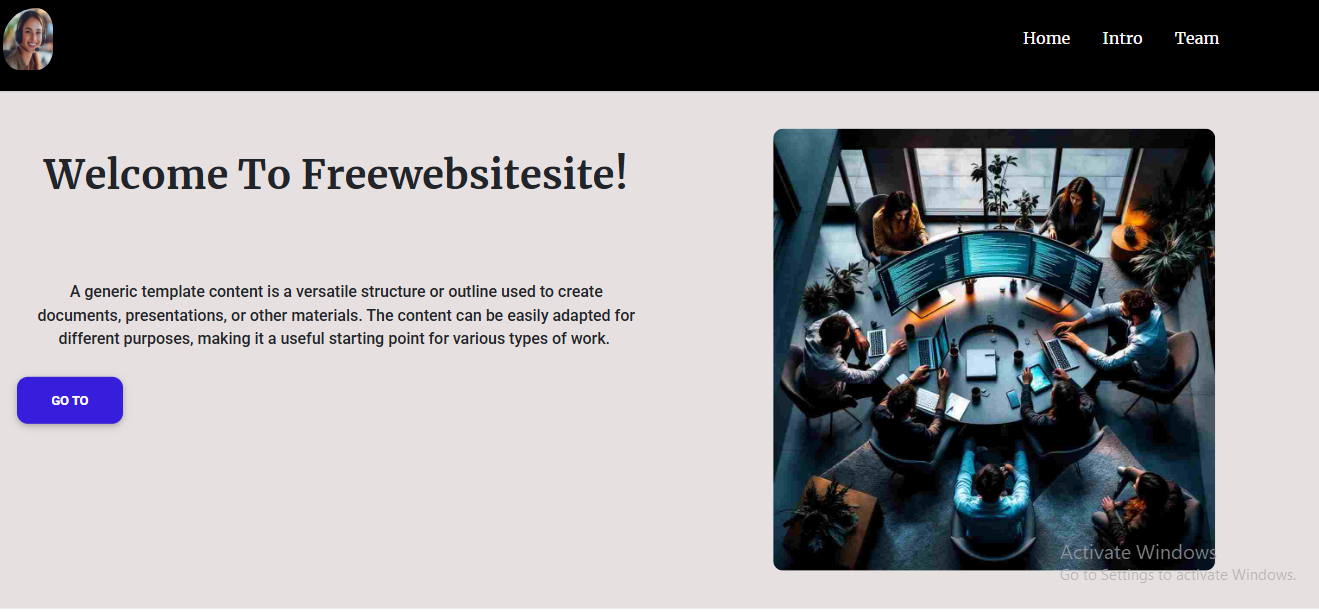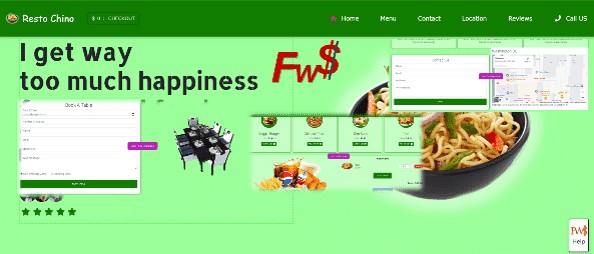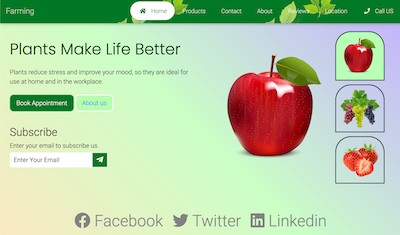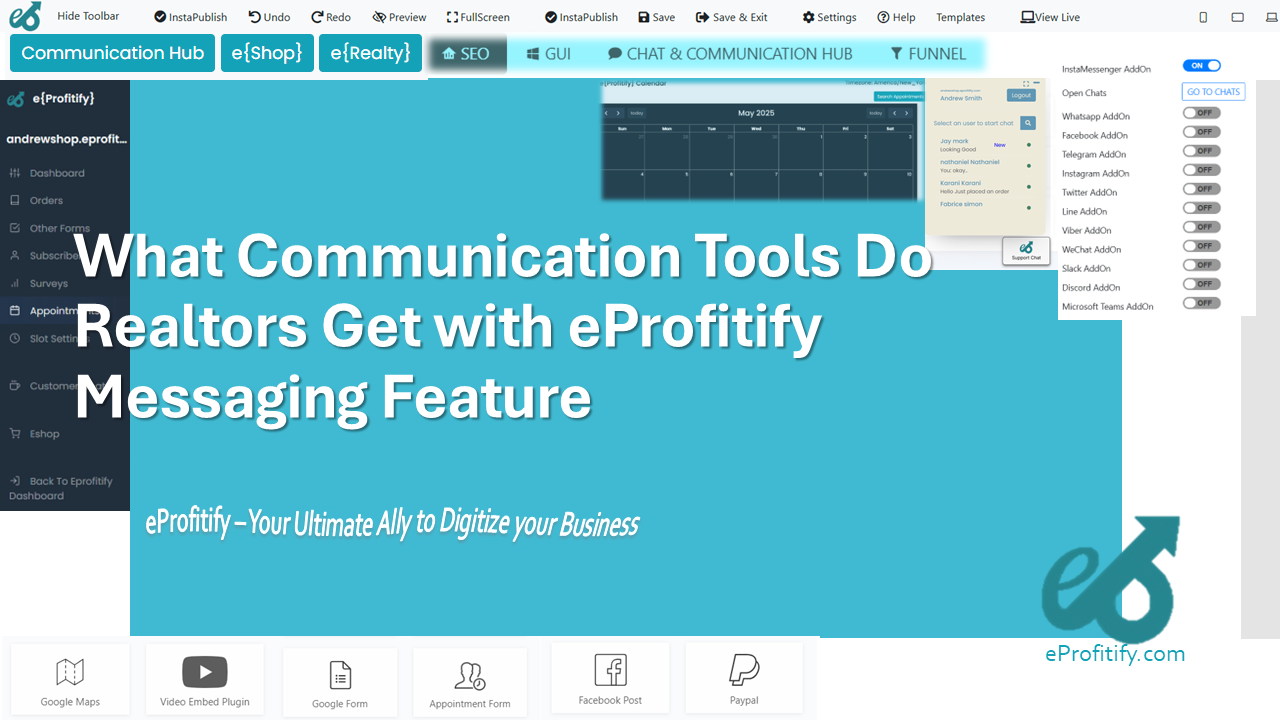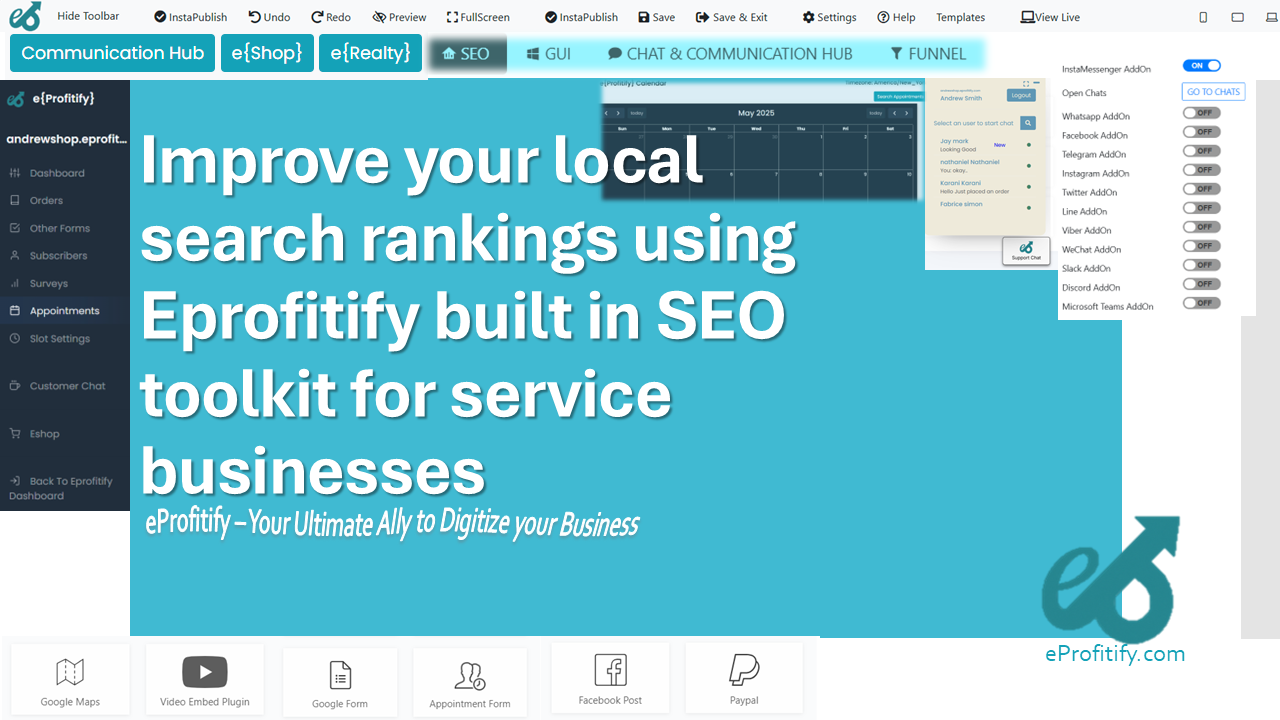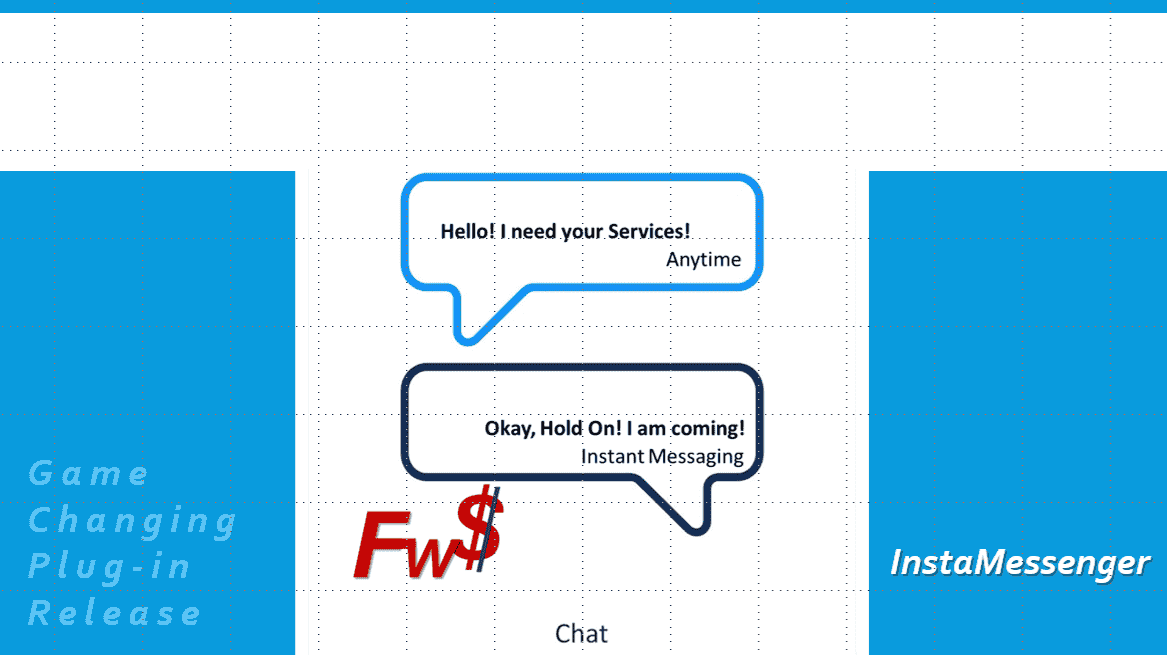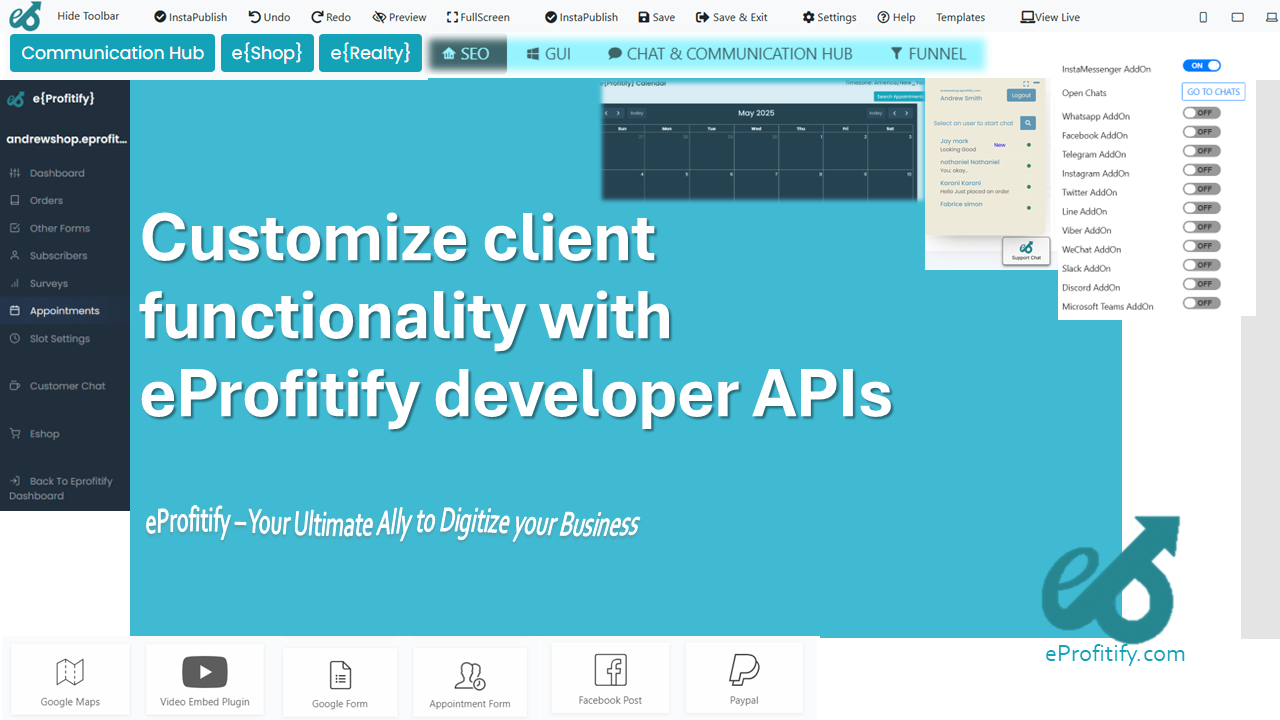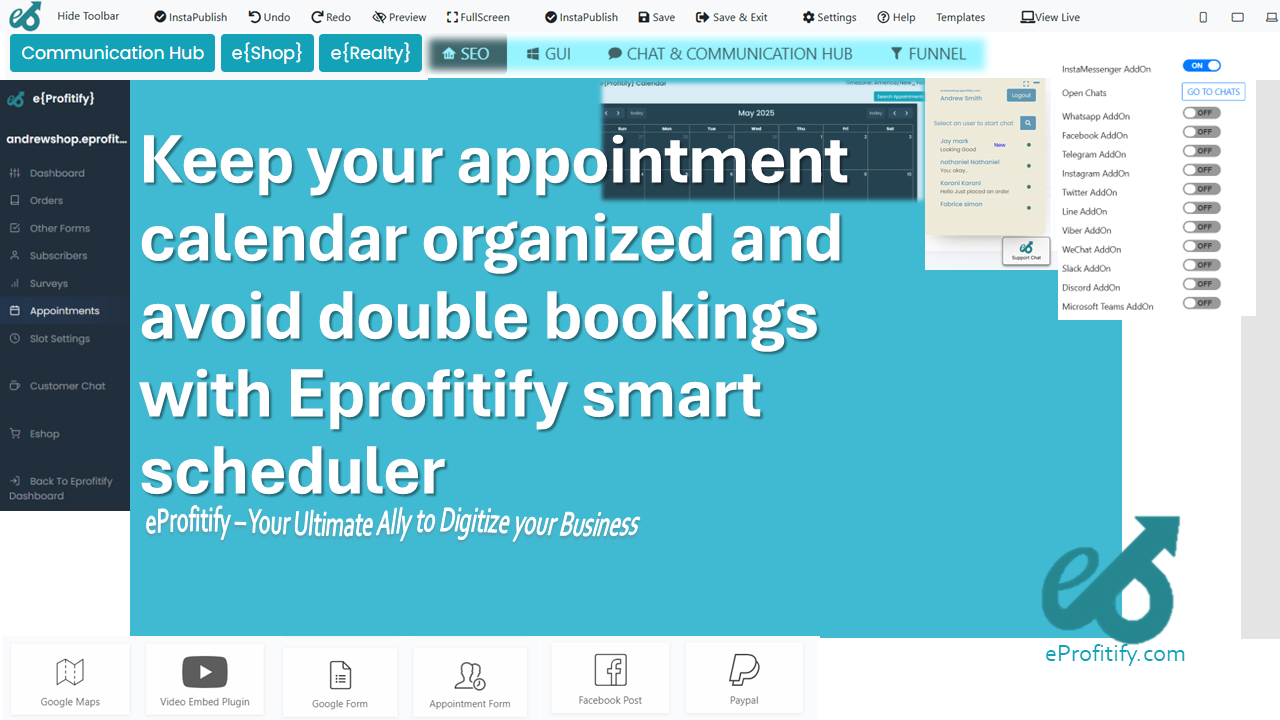Why eDocuflow Is a Smart Alternative to Traditional Contracting
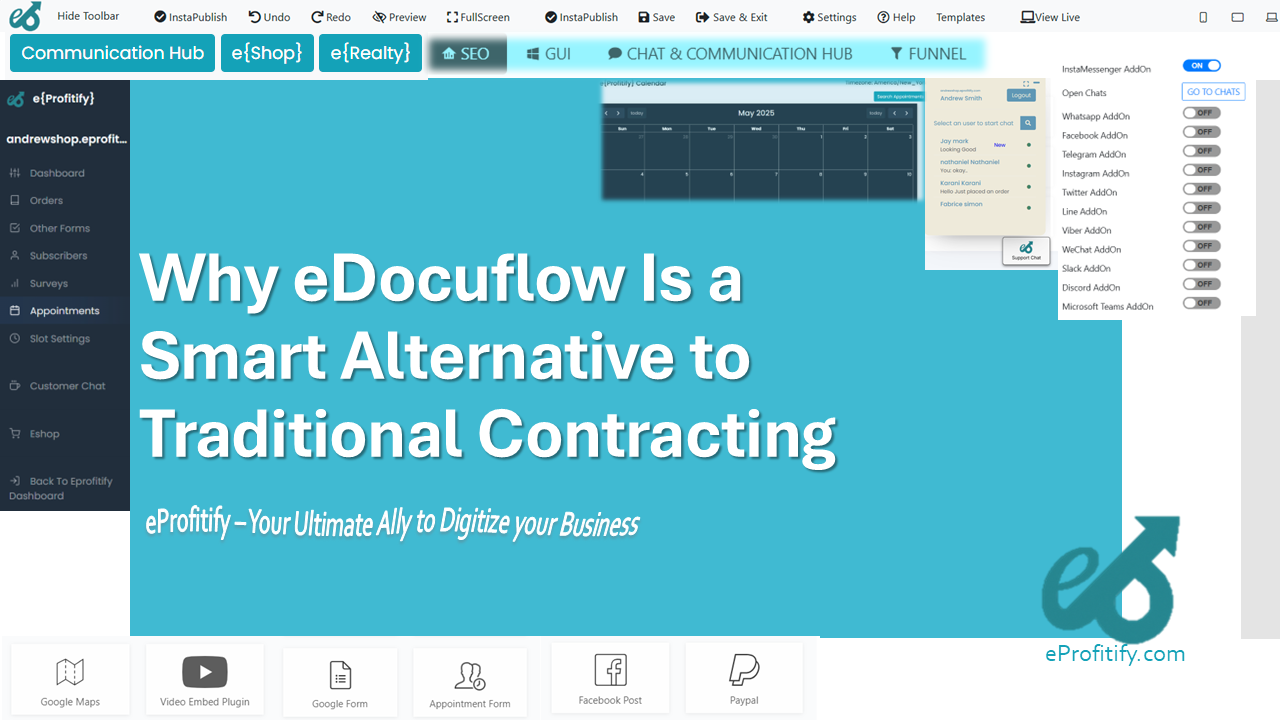
Schedule a LIVE Zoom call with an eProfitify Expert.
Why eDocuflow Is a Smart Alternative to Traditional Contracting
The business landscape has undergone rapid digital transformation, accelerated by the post-pandemic demand for agility and efficiency. Traditional contracting methods, reliant on paper-based processes, manual approvals, and fragmented communication, are increasingly seen as bottlenecks in a world that values speed, security, and scalability. Enter eDocuflow—a digital contracting platform designed to streamline workflows, reduce costs, and mitigate risks. This article explores why eDocuflow is a smarter alternative to traditional contracting, supported by industry statistics, and highlights how integrating it with eProfitify, a leading website publishing and management platform, amplifies operational success.
The Limitations of Traditional Contracting
Traditional contracting involves time-consuming steps: drafting physical documents, coordinating in-person signatories, and manually tracking revisions. These processes are prone to delays, errors, and security vulnerabilities. According to a 2023 Gartner report, organizations using manual contract management systems spend an average of 21.5 days finalizing a single agreement, with 9% of contracts requiring rework due to human errors. Additionally, 58% of businesses surveyed by World Commerce & Contracting in 2022 reported compliance issues stemming from inconsistent record-keeping or lost contracts. The financial toll is significant, with the average cost to process a paper-based contract exceeding $6,500, compared to just $300 for digital alternatives.
eDocuflow: A Modern Solution for Contract Management
eDocuflow addresses these challenges by automating and centralizing contract lifecycle management (CLM). Its features include AI-powered templates, electronic signatures, real-time collaboration, and compliance tracking, enabling businesses to:
1. Accelerate Contract Cycles
By automating approvals and leveraging e-signatures, eDocuflow reduces contract turnaround time by up to 70%, as reported by Forrester in 2023. Teams can collaborate on a unified platform, eliminating bottlenecks caused by geographic barriers or conflicting schedules.
2. Enhance Cost Efficiency
Transitioning to eDocuflow slashes administrative expenses linked to printing, shipping, and manual data entry. McKinsey estimates that digitizing contracting processes saves companies 30–40% in operational costs annually. For small businesses, this efficiency can redirect resources toward growth initiatives.
3. Strengthen Security and Compliance
eDocuflow employs end-to-end encryption, multi-factor authentication, and blockchain-based audit trails to protect sensitive data. A 2023 study by Ponemon Institute found that digitized contract systems reduce data breach risks by 64%, critical as cyberattacks cost businesses an average of $4.45 million per incident (IBM). Additionally, automated compliance checks ensure adherence to regulations like GDPR and CCPA, minimizing legal liabilities.
4. Improve Accessibility and Collaboration
Cloud-based storage allows stakeholders to access contracts from any device, while version control eliminates confusion over outdated terms. Teams using eDocuflow report a 50% reduction in miscommunication-related delays, per a 2023 Deloitte survey.
The Role of eProfitify in Enhancing Contract Management
While eDocuflow revolutionizes contracting, integrating it with eProfitify—a comprehensive website publishing and management platform—creates a seamless ecosystem for end-to-end business operations. eProfitify’s suite of tools complements eDocuflow by bridging gaps between contracting, customer relationship management, and revenue generation:
- Unified CRM Integration: eProfitify’s CRM centralizes client data, tracking interactions from initial contact to contract execution. Sales teams can auto-generate agreements via eDocuflow directly from the CRM, shortening sales cycles by 25%.
- Instant Messaging and Appointment Management: Real-time communication tools facilitate quick consensus on contract terms, while automated scheduling avoids delays in stakeholder meetings.
- E-commerce Capabilities: Link contracts to payment gateways for instant invoicing and upselling. Businesses using integrated e-commerce and CLM tools see a 35% increase in cross-selling revenue (Statista, 2023).
- Analytics and Reporting: Track contract performance metrics alongside customer behavior data to identify trends and optimize workflows.
Real-World Impact and Statistics
Combining eDocuflow and eProfitify yields measurable results:
- Companies using both platforms report 45% faster project kickoffs due to streamlined contracting.
- Small businesses leveraging eProfitify’s tools alongside eDocuflow achieve 20% higher customer retention rates.
- A 2023 case study by TechValidate highlighted a logistics firm that reduced contract-related expenses by 52% and boosted deal closures by 60% within six months of adoption.
Conclusion
eDocuflow redefines contract management by eliminating inefficiencies inherent in traditional methods. Its integration with eProfitify creates a synergistic environment where contracting, customer engagement, and commerce converge seamlessly. As businesses prioritize digital transformation, adopting these tools is not just strategic—it’s essential for staying competitive. With proven cost savings, enhanced security, and accelerated workflows, eDocuflow and eProfitify empower organizations to focus on what truly matters: growth and innovation.
